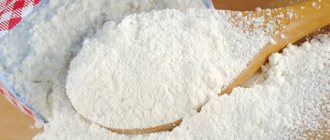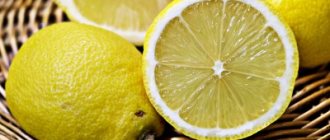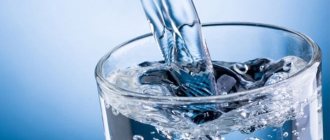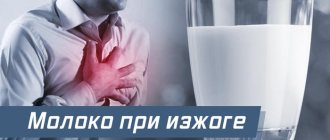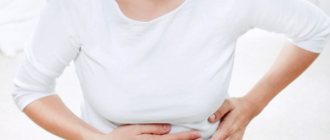Salivation is a natural physiological process. Saliva is actively secreted at the sight of food, during its intake and is necessary for its primary breakdown. However, excessive salivation can be a manifestation of some diseases.
Saliva is a fluid secreted by the salivary glands. It contains water, enzymes, minerals, organic substances. A healthy person produces 1 ml of salivary secretion every 5 minutes.
Excessive secretion of saliva is called hypersalivation - the secretory activity of the salivary glands is increased. The only case when current drooling is a physiological norm is in children from three months to six months, in other cases it is considered as a symptom of a particular disease.
- Causes of excessive salivation in a child
- Excessive salivation at night
- Is excessive salivation a sign of pregnancy?
- How to treat increased salivation?
Causes of increased salivation
Excessive salivation can be caused by inflammatory pathologies of the oral cavity or upper respiratory tract - gingivitis, sore throat, stomatitis. At the same time, pathogenic bacteria penetrate the ducts of the salivary glands, causing inflammation and swelling.
The mucous membrane becomes irritated, and saliva begins to be actively produced as a protective reaction to the effects of pathogens and their metabolic products.
In case of excessive salivation, the cause is a disease of the digestive system, for example:
- gastritis and peptic ulcer;
- dysfunction of the pancreas;
- increased acidity;
- tumors;
- liver pathologies.
Hypersalivation appears if the vagus nerve is irritated, with Parkinson's disease and some other disorders of the brain and spinal cord.
Other reasons why drooling may also be:
- diabetes mellitus and thyroid pathologies;
- medicines – Nitrozepam, Physostigmine, Pilocarpine, lithium preparations, Muscarine;
- helminthiases;
- toxicosis of pregnant women.
Hypersalivation as a sign of disease
Increased salivation can cause disturbances in the functioning of the gastrointestinal tract, which is associated with various disorders of the digestive system: neoplasms, gastritis, ulcers, high acidity.
Hypersalivation occurs due to the entry of microorganisms from the gastrointestinal tract into the oral cavity. The development of such a process occurs rather slowly and a person does not notice how the amount of saliva produced increases.
Often, increased salivary secretion occurs as a result of lesions of the central nervous system, which include: Parkinson's disease, mental disorders, brain injuries, cerebral palsy, irritation of the vagus nerve.
In the presence of any of these pathologies, increased secretion of the glands is combined with nausea. Patients often have problems with nasal breathing and swallowing. Hypersalivation can occur due to endocrine diseases due to hormonal imbalance, which subsequently causes a failure of all functions and systems of the body.
Due to dysfunction of the salivary glands, excessive fluid production occurs. Hypersalivation occurs due to all types of diabetes mellitus, inflammatory processes in the pancreas and thyroid abnormalities.
Causes of excessive salivation in a child
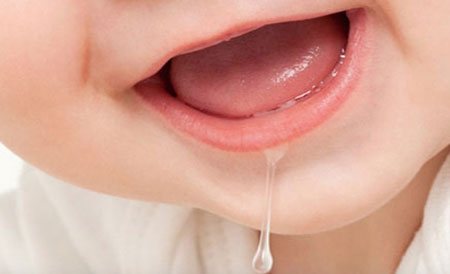
Hypersalivation is normal in babies aged 3-6 months and during the period when the first teeth are cut. Pathological causes of excessive salivation in a child are:
- digestive disorders and gastrointestinal diseases;
- stomatitis;
- sialadermatitis;
- entry of pathogenic microorganisms into the oral cavity;
- helminth infection.
Excessive salivation is possible in children with cerebral palsy. The muscles of the mouth and face in this disease are uncoordinated due to impaired brain function.
Hypersalivation can be false, that is, not caused by health problems. In this case, the amount of salivary secretion released does not exceed the norm, but the child does not swallow it.
You can overcome this by teaching your baby to swallow saliva and eliminating the habit of keeping his mouth constantly open. A light massage of the soft palate can help with this, and to train the facial muscles it is useful to give the child solid vegetables (carrots, apples).
Other Possible Causes
Worms - intestinal, liver and others - cause serious intoxication of the body. The body reacts to such changes in different ways, including starting to produce more saliva. This is usually combined with a number of other symptoms:
- stomach ache;
- frequent diarrhea;

Among the signs of poisoning of the body with chemical agents, heavy metals, and pesticides, hypersalivation also occurs. As a harbinger of acute renal failure, seriously ill patients often experience uremia, or self-poisoning of the body, and this condition is also sometimes combined with excessive production of saliva.
Ptyalism is characteristic of a serious infectious disease - rabies, although it is very rare. Some medications have similar side effects when taken - you should read the instructions more carefully.
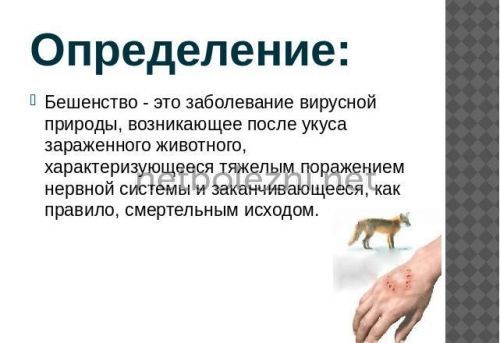
Blood pressure medications, cardiac glycosides, and alkaloids have this effect. Men and women smokers also produce more saliva due to mouth irritation from nicotine to wash away harmful substances. After anesthesia, hypersalivation is a common side effect and goes away on its own within 1-2 days.
Increased salivation can be both a physiological and pathological manifestation. This symptom has no restrictions regarding age category and gender, which is why it can occur even in young children and females during the period of bearing a child.
A large number of predisposing factors can cause the formation of a test sign, and only for children this can be a completely normal manifestation.
If the cause of increased salivation is a disease, it will be accompanied by other signs, for example, pain or nausea.
Normally, a person should secrete one milliliter of saliva within five minutes; if this figure is significantly higher, then it is necessary to seek advice from qualified specialists. Clinicians will carry out the necessary diagnostic measures and prescribe therapy aimed at eliminating individual etiological factors.
Excessive salivation at night
Normally, less saliva is produced at night than during the day. The reasons for excessive salivation in a person during sleep are:
- Breathing through the mouth due to diseases of the nasopharynx (rhinitis, sinusitis), allergic rhinitis, deviated nasal septum;
- Problems with sleep, nervous tension - since the activity of the salivary glands depends on the functioning of the brain, anxiety and intermittent sleep lead to excessive salivation;
- An abnormal bite in which the jaws close unevenly, causing accumulated saliva to leak out.
Causes of hypersalivation at night ↑
During sleep, less saliva is produced than during wakefulness. But sometimes there is increased salivation, which appears in a person during sleep.
Not only is it a very unpleasant and inconvenient phenomenon, but prolonged hypersalivation at night can eventually lead to the person one day choking on his own saliva.
However, if characteristic marks on the pillow appear infrequently, there is no need to worry - this only indicates that the body woke up before the person.
Mouth breathing
The habit of breathing through the mouth can lead to hypersalivation at night. If mouth breathing is just a habit, then there is no other way but to get rid of it.

Photo: Face type with mouth breathing
But sometimes a person breathes through his mouth at night due to ENT diseases, allergic rhinitis or problems with the nasal septum. This situation requires consulting a doctor and appropriate treatment.
Video: mouth breathing as a cause of many diseases
Features of the structure of the jaws
An incorrect bite in a person, that is, the lack of proper closure of the jaws, can lead to hypersalivation at night, because the mouth will open involuntarily.
For the same reason, increased salivation at night is observed in many elderly people - in a supine position, their lower jaw relaxes, their mouth opens slightly, and saliva begins to flow.
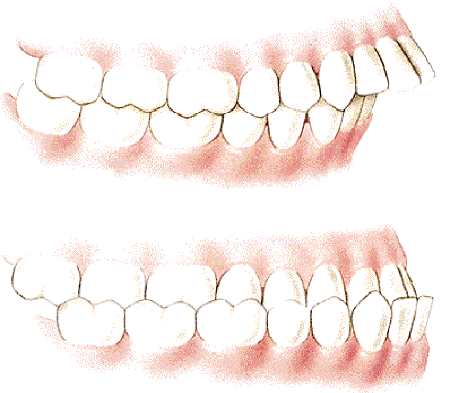
Photo: Malocclusion
Sleep disorders
The severity of disorders associated with salivation normally depends on the functional state of the brain during sleep and wakefulness. If these regimes are violated, hypersalivation increases.
In addition, if a person sleeps very deeply, he loses control of his body during sleep, which can lead to increased drooling from the mouth.
Causes of increased salivation in children
Hypersalivation in children between 3 and 6 months of age is a normal condition that does not require any intervention. The smallest children salivate at the level of unconditioned reflexes.
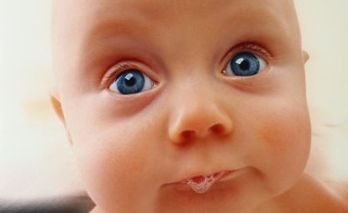
In some cases, increased salivation may also occur in a child aged 9–12 months if teething began during this period. The very fact of teething is already a normal reason for drooling.
Everything else and any other age is already a pathology. Increased salivation in children can also serve as a symptom of such serious conditions as concussion and head injuries.
In infants
Infants most often suffer from hypersalivation due to infections and irritants entering the oral cavity.
Problems with the gastrointestinal tract and viral diseases - stomatitis of various origins, viral sialadenitis, lead poisoning - can lead to increased salivation in the youngest children.
In infants, false hypersalivation also occurs, in which the amount of saliva secreted by the body remains normal, but it is not swallowed. This may occur due to a violation of the act of swallowing, which is associated with paralysis or inflammatory processes in the pharynx.
In an older child
If excessive salivation occurs in older children, the reasons may be the same as in infants and adult children, but psychological problems are also added to them.
As higher nervous activity develops, children sometimes experience strong emotional experiences, stress, etc., which can provoke increased drooling.
In older children, hypersalivation can lead to dysarthria, that is, a violation of the pronunciation part of speech, because due to the large amount of saliva in the mouth, it is difficult for the child to pronounce words correctly.
Dysarthria is a common cause of developmental delay.
The appearance of this symptom in children should necessarily be the reason for visiting a pediatrician or pediatric dentist.
Is excessive salivation a sign of pregnancy?
The cause of increased salivation in women is early toxicosis, in which an increase in the amount of saliva is provoked by a deterioration in cerebral circulation. After 10-12 weeks, this problem most often goes away.
Increased stomach acidity, which can be a manifestation of toxicosis, can increase the secretion of saliva during pregnancy. Associated symptoms include heartburn, nausea, and vomiting.
During pregnancy, increased salivation can also be caused by a deficiency of vitamins and weakened immunity against this background. This can be prevented by proper nutrition and taking vitamin and mineral complexes from the very beginning of pregnancy, and ideally before its onset.
It is a mistake to consider hypersalivation as a direct sign of pregnancy.
Treatment options
You should consult a doctor immediately if:
- Nausea remains for a long time for no apparent reason;
- There is uncontrollable vomiting, vomit with blood is released;
- A sharp deterioration in health;
- Severe diarrhea, black discharge;
- High body temperature, antipyretics do not help;
- Acute pain in the abdominal area;
- Loss of consciousness occurs;
- Frequent fainting;
- It becomes difficult to breathe;
- There are signs of dehydration.
These symptoms are life-threatening, whether it is an adult or a child. Urgent medical attention, hospitalization, prompt determination of the cause and treatment are needed.
Nausea is not a disease, but a symptom. Therefore, only after diagnosing the cause can treatment begin. Don't self-medicate! If there is an accompanying pathology, there is a risk of aggravating the situation. The doctor prescribes medications according to the diagnosis.
To eliminate the unpleasant symptom, antihistamines (Diphenhydramine, Tavegil, Suprastin), antispasmodics (No-shpa, Papaverine), neuroleptics (Aminazine), probiotics (Linex, Bifidumbacterin, Biogaya) are used.
Increased salivation and stomach pain
Question: Good afternoon.
Three days ago, for no apparent reason, nausea, salivation, and stomach pain began. What diseases could this be a symptom of? Do you need medical help? Answer: Hello. There are many reasons for this condition and many of these symptoms indicate serious pathologies. For a more accurate diagnosis, you should visit a doctor and undergo appropriate tests.
Why do these symptoms begin?
- With gastritis, a person experiences cutting pain, the stomach is full, the person feels nauseous, dizzy, and has no appetite. Sometimes patients suffer from sour belching with an unpleasant odor from the mouth. Treatment is medicinal.
- With reflux esophagitis, stomach acid refluxes into the esophagus and the inflammatory process begins. Clinical picture: after eating, heartburn and pain in the chest area begin. The passage of food through the esophagus is difficult.
- With pancreatitis in the chronic stage, the patient feels nauseous, drooling, and loss of appetite. A person often experiences diarrhea and bloating. It is not possible to relieve unpleasant symptoms at home; the patient requires hospitalization.
- With achalasia of the cardia, the process of reflex opening of the cardia is disrupted, food entering the esophagus does not pass properly. This causes pain, excessive salivation, and belching. The etiology of the disease is unknown.
These diseases are interrelated and can provoke esophageal cancer, so to diagnose the disease and treat it, you need to see a doctor.
Gastritis is inflammation of the gastric mucosa, duodenitis is the part of the intestine below the stomach. The diseases have similar symptoms and treatments. In its acute form, it burns and stings in the upper abdomen in the middle or left, and can radiate to the back.
Pain and discomfort go away without treatment. In the chronic form, the symptoms are less pronounced. In the case of the erosive type, the gastric mucosa is thinned; in the case of non-erosive gastritis, it is changed.
If measures are not taken, the risk of developing stomach ulcers, neoplasms, and gastrointestinal pathologies is increased.
Symptoms
Gastritis affects directly the stomach, gastroenteritis affects the stomach and intestines.
The study concluded that gastritis may increase the risk of developing dementia (acquired dementia).
Stomach disease may occur without any signs or symptoms.
The bacterium Helicobacter pylori (H. Pylori), which is found in half the population, is considered the main cause of gastritis.
Erosive gastritis is less common but can cause chronic bleeding and anemia.
In addition to erosive and non-erosive varieties, the following types of disease are distinguished:
- infectious, its cause is not Helicobacter, but viruses or fungal infection, especially when the immune system is weakened - for example, as a result of a chronic disease;
- eosinophilic, caused by an allergic reaction of the body.
Acute form of gastritis . Signs appear suddenly. The reasons are caused by or associated with overeating, poor quality food, allergic reaction to certain foods, stress:
- severe pain in the upper abdomen;
- increased temperature, sometimes up to +38C;
- feeling of fullness in the stomach;
- belching sour with a bad smell;
- white coating on the tongue, dryness or excessive salivation;
- heartburn, nausea;
- vomiting with food debris, mucus, bile - colorless, yellow, green, sometimes with inclusions of blood;
- bloating, discomfort, constipation or diarrhea are common;
- headache and dizziness;
- general weakness, aversion to food.
The chronic form is the most common. Periods of remission, the almost complete disappearance of gastritis symptoms, are followed by exacerbations.
The structure of the mucosa is thinned, which disrupts the production of gastric juice. The secretory and motor functions of the stomach are changed.
Chronic gastritis often accompanies colitis, duodenitis, cholecystitis, and pancreatitis. Symptoms of the chronic form appear in the case of other gastrointestinal diseases, which makes it difficult to make a correct diagnosis.
- dull aching pain after eating in the upper stomach, less often in the left or right hypochondrium;
- distension and fullness of the stomach;
- unpleasant taste in the mouth;
- heartburn, belching;
- nausea;
- lack of appetite;
- weight loss;
- constipation.
Helicobacter enters the stomach , which is capable of existing and multiplying in the aggressive environment of gastric juice. Symptoms of this form of the disease:
- lack of appetite, quick satiety;
- bloating after eating, feeling of fullness and fullness;
- belching, heartburn;
- profuse salivation.
The chronic form of gastritis occurs with low and high acidity; it is determined by secretory insufficiency or excess.
Low acidity : nausea, quick satiety, bloating. Those suffering from this type tend to lose weight, have dry skin, thin hair, and brittle nails.
Increased acidity : heartburn, sour belching, nausea, unpleasant taste in the mouth.
If, in the chronic form, the stomach produces little juice, gastritis with secretory insufficiency (hypoacid) is diagnosed.
If there is a lot - with increased secretory activity (hyperacid).
These types of gastritis have different symptoms and treatments.
Insufficient production of gastric juice (hypoacid form):
- weak aching pain, pressure in the upper abdomen;
- belching rotten;
- nausea or vomiting;
- rumbling and flatulence;
- lack of appetite – the reason for weight loss;
- brittle hair and nails;
- loose stools;
- lethargy, rapid fatigue.
Increased secretory activity (hyperacid form):
- severe pain after or during eating;
- belching, but not rotten;
- heartburn, nausea, vomiting;
- constipation;
- frequent mood swings, irritability;
- insomnia.
Autoimmune atrophic gastritis . With this type of chronic disease, the body absorbs vitamin B12 worse, which can cause the development of anemia (anemia).
More often found in representatives of the Asian, Northern European race, as well as in diseases of the thyroid gland, type 1 diabetes, vitiligo (white spots on the skin). This form increases the risk of developing stomach cancer.
To treat gastritis, the doctor prescribes antibiotics, as well as drugs to reduce the production of gastric juice, injections of vitamin B12, and iron to eliminate their deficiency.
Causes of gastritis
The following factors increase the risk of developing the disease:
- frequent stress;
- regular treatment with non-steroidal anti-inflammatory drugs, steroids, aspirin;
- autoimmune disorders, type 1 diabetes;
- allergies to certain foods.
The study refuted the common belief that the secretion of gastric juice decreases when you reach a significant age. The real cause is the bacterium Helicobacter pylori.
Acute form . Symptoms of gastritis are a consequence of damage to the gastric mucosa:
- irregular eating, undereating and overeating, rushing while eating;
- poor chewing of food, unhealthy teeth;
- low-quality products, abuse of fried, hot, spicy, rough foods;
- deficiency of protein and vitamins is the cause of insufficient production of gastric juice;
- alcohol abuse, smoking;
- treatment with antibiotics, aspirin, hormonal drugs;
- gastrointestinal disorders, peristalsis, reflux of bile into the stomach and inflammation of the mucous membrane;
- viruses, bacteria, streptococci, staphylococci, salmonella, which disrupt the balance of microflora.
Symptoms of acute gastritis cause stress, the consequences of shock, serious surgery, severe trauma, severe burns.
In advanced cases of acute gastritis, the mucous membrane is damaged down to the muscle tissue. The more pronounced the symptoms - pain, heaviness in the stomach - the deeper the inflammation.
Chronic gastritis provokes poor-quality or incomplete treatment of the acute form.
Intestinal infections, inflammation of the tonsils (tonsillitis), gall bladder, infection with Helicobacter pylori maintain the chronic form.
The cause of the symptoms of chronic gastritis is a hereditary predisposition.
The chronic form occurs in hazardous production conditions, when dust, fumes of acids or alkalis, and harmful chemical compounds are ingested daily.
Constant inflammation of the gastric mucosa is associated with allergies.
The gastric juice contains pepsin to break down protein foods. In case of failure, pepsin acts on the mucous membrane, which also contains protein, causing inflammation due to the stomach digesting itself.
Diagnosis and treatment
Even in the absence of clear symptoms of gastritis, an experienced doctor quickly makes a diagnosis and prescribes treatment.
You may need to take blood and urine tests, check the function of the kidneys, liver, gallbladder, pancreas, the presence of anemia, and in women, pregnancy.
Before treating gastritis, the doctor performs an endoscopic examination - inserts a thin tube through the mouth and examines the stomach from the inside.
If you experience vomiting, especially yellow or green vomiting, dizziness, shortness of breath, difficulty breathing, chest pain, increased heart rate (signs of anemia), severe abdominal pain, fever, sweating, foul-smelling bloody or black stool, you should immediately consult a doctor .
The drug treatment of gastritis prescribed by a doctor is determined by the above and other symptoms:
- Helicobacter pylori is treated with antibiotics, which are of no use for non-bacterial causes of gastritis.
- Proton pump inhibitors reduce the production of hydrochloric acid.
- Treatment of gastritis with histamine (H-2) blockers accelerates the recovery of the mucosa.
- Antacids (baking soda) neutralize hydrochloric acid and can cause diarrhea or constipation;
- Preparations for protecting the mucous membrane envelop and increase the formation of mucus in the stomach.
- Take anti-nausea medications.
Source: https://okishechnike.com/info/povyshennoe-sljunootdelenie-i-bol-v-zheludke/

